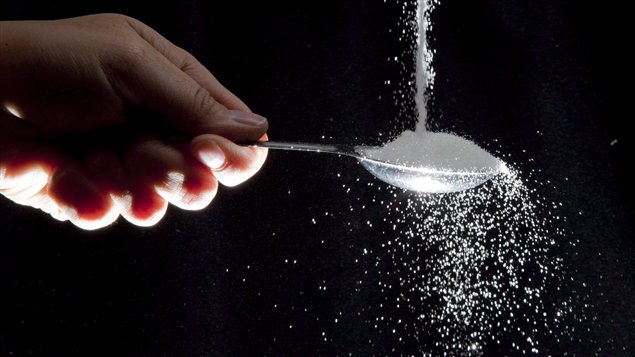While the World Health Organization (WHO) this week urged people to limit their intake of so-called free sugars to less than five per cent of their diet, most Canadians eat at least double that. The average Canadian consumes 26 teaspoons of sugar, about half of it coming from fresh foods, the other half from refined sugars, syrups, honey, and other sweeteners.
The WHO says if the average adult were to eat about six teaspoons of sugar a day they would reduce their risk of obesity and tooth decay. Recent research from the United States links high sugar consumption with greater risks of hypertension, cardiovascular disease and diabetes even in people with normal body weight.

Why Canadians eat so much sugar
“Sugar has become increasingly added into food processing,” says Dr. Tom Warshawski, chair of the Childhood Obesity Foundation and a practicing pediatrician. He notes the book Salt Sugar Fat: How the Food Giants Hooked Us by Michael Moss has documented how the food industry has added these elements to make their products irresistible. Many Canadians eat processed foods and may not be aware of their sugar content. For example few would know that a tablespoon of ketchup contains a teaspoon of sugar.
Soft drinks can also be blamed for Canadians’ high consumption of sugar, says Warshawski. A single can of pop can put individuals above the limit set by the WHO.
‘Time for Health Canada to take action’
Canada does not set limits for the consumption of sugar. “In all fairness to Health Canada, up until now, there hasn’t really been good data on which to base a threshold (for safe consumption of sugar),” says Warshawski. “But there is now, and it’s time for Health Canada to take action.”
The Canadian government has recently preferred to consult with the food industry rather than pass regulations on such issues as salt content of processed foods. Warshawski finds that problematic because the industry’s objective is to make a profit and not to protect Canadians’ health. He cautions against industry self-regulation likening it to having the foxes guard the henhouse.
Doctor calls for warning stickers
Instead Warshawski would like the government to set up an independent body to study the problems with sugar and eventually for Health Canada to have clear labelling with perhaps “red stickers” on products which contain enough sugar to exceed healthy limits. He says Canadians are unlikely to change their habits if the sugar issue is simply a passing news story.








For reasons beyond our control, and for an undetermined period of time, our comment section is now closed. However, our social networks remain open to your contributions.